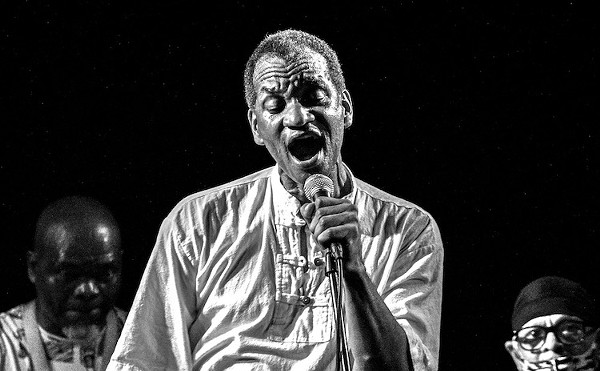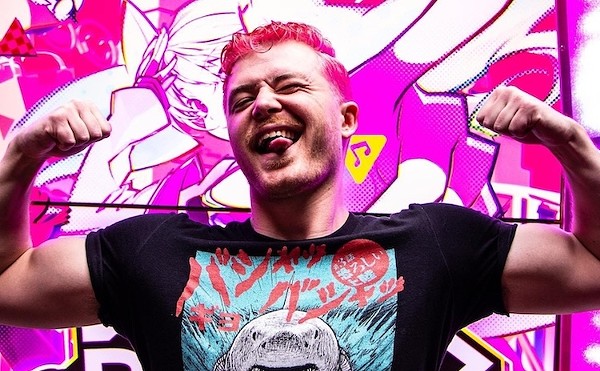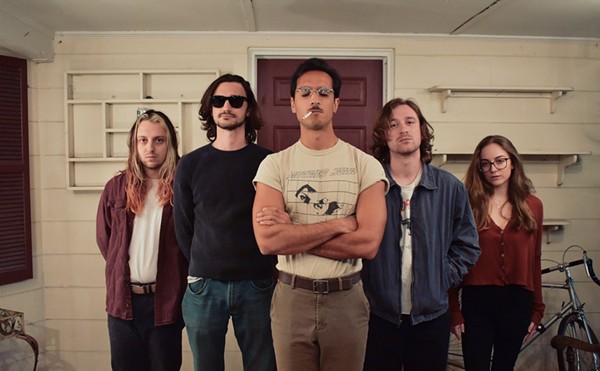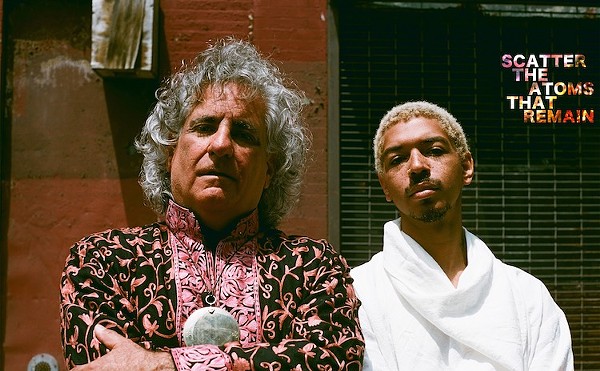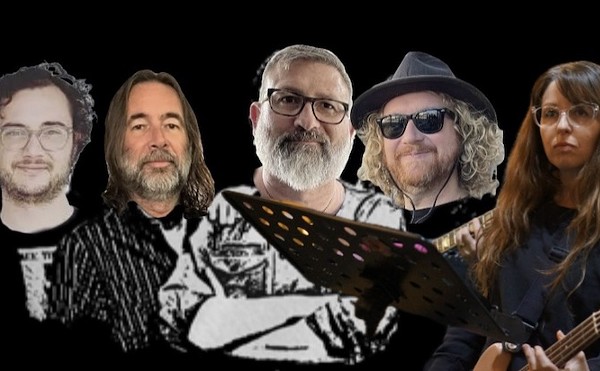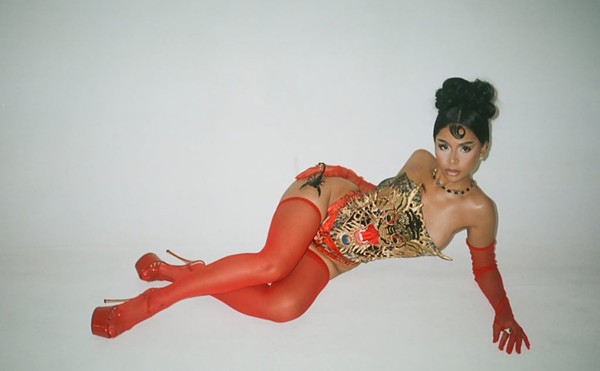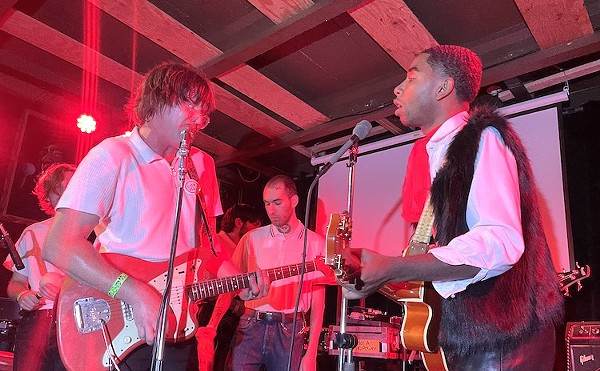I'm not sure what exact moment music historians will pinpoint as the death knell of the male R&B vocalist, but it will probably have something to do with Michael Jackson.
In the past few weeks alone, Jackson has provided at least three flash points connected to his latest album, "Invincible." From a sales standpoint, the numbers have been, as they say in the industry, soft. From a visual perspective, the spectacle of his TV special and the literal shadow of his former self would make a fine opener for a documentary titled "The Nadir of the Male R&B Vocalist."
Personally, I like the quiet pathos of the way the King of Pop sounds at the beginning of "Rock My World," as he says, "She is bangin'." It's a desperate attempt to be hip. More than any spreadsheet or egomaniacal freak show, Jackson's statement illustrates just how much vitality the male R&B singer has lost in the last 10 years.
That's not to say there aren't any more male singers; there are plenty. Both Tank and Jaheim have had pretty good years. Ginuwine's career has lasted much longer than most would have predicted. None of the current R&B pinups -- Usher, Brian McKnight or Tyrese -- has to worry about working at The Gap any time soon. Still, each of them is one bad single away from Aaron Hall or Tevin Campbell stature on the cultural landscape. And all of their successes pale in comparison to those of their female colleagues.
In R&B, it has been all about the ladies for the last five years. In 2001, no other rookie came even close to the level of Alicia Keyes' success, and though Mary J Blige is five albums deep, she continues to earn the title of Queen of Hip-Hop Soul. Missy Elliot's ongoing metamorphic assault on the public soundscape shows no sign of slowing down.
Lauryn Hill hasn't released any music in the last three years, but she's still a force to be reckoned with. Posthumously, Aaliyah became a saint. On the boho side, Jill Scott earned icon status on the success of one album -- just as Erykah Badu did five years ago. Meanwhile, their male counterparts, D'Angelo and Maxwell, continue to try and regain their footing. As encouraging as Ragged Edge's and 112's successes are, they can't touch Destiny's Child. Ladies first, indeed.
So what's the deal? Why don't listeners relate to Usher the way they do to Blige? In the context of black music's history, the male singer has been emasculated and replaced.
On its most basic level, black music has always been about biography. Tracing R&B's origins back to the blues, practitioners of the form have told their own stories, whereas in other musical forms there is more room and credence given to the third-person perspective. When Mahalia Jackson sang, "Precious Lord, take my hand," she was the "my," just as Aretha Franklin was a link in the "Chain of Fools" and Blige herself has no time for "hateration." Because of that historical relationship between black artists and their music, authenticity is always the underlying litmus test for both black and white listeners.
When gender comes into play, it gets more complicated. The male R&B singer not only has to address personal-relationship issues, but also has to demonstrate his manhood by showing his sexual prowess and dealing with The Man. Again, there's no doubt that James Brown is a sex machine, and he's black and proud -- just as Marvin Gaye's inner-city blues made him want to holler, and, yeah, he wanted you to get it on with him. The R&B singer had the biggest dick on the block. He attracted the ladies and racked up the sales. Then came hip-hop.
Hip-hop upped the masculinity ante, and R&B still hasn't recovered. Even after the late-'80s/early-'90s heyday of revolutionary hip-hop, which took over black music's political discourse, rap never let up on its sexual dominance.
Spitting out rhymes, grabbing the mike like his penis, bare-chested, tattooed and confrontational, the male MC is sexuality personified. Most of those behaviors are superficial, of course, and, since the days of Bell Biv z and Jodeci, have been adopted by many R&B singers. But male R&B stars can cornrow their hair and wear Timbos all they want -- they're still singing. Tank is hard and manly and cock-diesel, but -- as soon as he opens his mouth -- listeners think, subconsciously, that Ja Rule -- who's about 70 pounds lighter -- can take him. Hip-hop is just more masculine than R&B. Think of the many images of DMX surrounded by pit bulls and barking lyrics at the camera. It may be a savage street image, but it is more in line with the pure, unadulterated, sex-laden Teddy Pendergrass R&B tradition than Brian McKnight or Jaheim.
The R&B singer has been able to hold a tenuous grip on musical relevance through the relationship song. It's assumed that if listeners want emotion or vulnerability from a male performer, they have to turn to a singer, the success of L.L. Cool J's "I Need Love" aside. But even that is changing. Whether it's the influence of Southern MCs' singsong delivery or a conscious decision to expand hip-hop's subject matter, the sensitive thug is here to stay. Ja Rule is the poster boy for the subgenre, and his recent hit "I Cry" touched the hearts of urban listeners more than Maxwell's whole last album.
The only male singer who has shown any type of resilience in the face of hip-hop's assault on R&B over the past five years is R. Kelly. Like his contemporaries, Kelly encodes his image and music with the language of hip-hop. Cornrowed, tattooed and iced up, Kelly could be easily mistaken for an MC, until he opens his mouth. Even then, and unlike other male R&B singers, he has credibility with hip-hop listeners.
Kelly gets this esteem because his "hip-hopness" isn't superficial. He embodies the rebellion inherent in the form: his "illegal" marriage to a then-15-year-old Aaliyah (which was eventually annulled), his ability to flip his ghettoness into writing gigs for "straight" acts like Michael Jackson and Celine Dion, the confidence to be tongue-in-cheek ("feelin' on your bootie"). It's a vibe that someone like, say, Tyrese doesn't have.
Because of that kinship and respect, Kelly is sort of a male Mary J Blige -- the only other R&B singer to get mad hip-hop respect. Unfortunately, his success is so closely linked to his personality that it would be difficult for another singer to copy it, as any post-R. Kelly, Charlie Wilson-sounding act could tell you. So, back to square one.
Will the male R&B singer go the way of the bluesman and the jazz virtuoso as arbiters of black manhood? Will he be relegated to anachronism? It's hard to say. R&B is malleable. There was a time, when hip-hop was on the rise, that R&B was written off altogether, but the continuing success of female singers has disproved that notion. Perhaps the men will find a way to restructure and redefine the way they approach music and, more importantly, how listeners approach them.
Arguably, the best song on Jackson's "Invincible" is the third-person "Whatever Happens." Maybe the story-song is the wave of the future for the male singer. I hope that means Michael Jackson will never refer to a woman as "bangin'" again.




